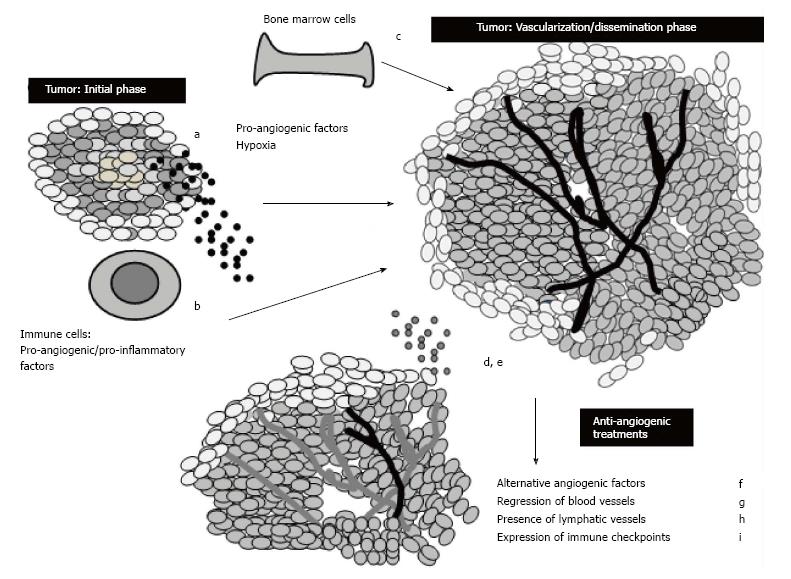Copyright
©The Author(s) 2017.
World J Clin Oncol. Apr 10, 2017; 8(2): 120-134
Published online Apr 10, 2017. doi: 10.5306/wjco.v8.i2.120
Published online Apr 10, 2017. doi: 10.5306/wjco.v8.i2.120
Figure 1 A schematic diagram of the most common resistance mechanisms to targeted therapies.
(1) Alteration of the drug target (Treat.): This type of resistance involves mutations as well as amplifications of drug targets such as kinases; (2) Upstream and downstream pathway effect through the activation of receptor tyrosine kinase (RTK) (a) and/or the mutation/amplification of upstream (b) or downstream (c) components; (3) Bypass mechanisms occur as a result of a second receptor tyrosine kinase activation (a), through a mutation of a parallel kinase (b) or modulation of mRNA binding proteins (c). These alternative mechanisms of resistance especially through kinases activation result in the modification of gene expression via the phosphorylation or transcription factors (TF).
Figure 2 Resistance mechanisms to anti-angiogenic therapy.
During the initial development, tumor cells that are in the core of the tumor, become hypoxic and secrete pro-angiogenic factors (a); Proangiogenic factors are also produced by immune cells (b) and bone marrow cell participate in tumor vascularization (c); The amplification of cancer cell genome stimulates high gene expression levels, consequently, requiring an increased anti-angiogenic drug concentration (d); Tumors have evolved to switch from various modes of vascularization, in order to ensure a sufficient supply of nutrients, such as sprouting angiogenesis, vasculogenesis, vessel co-option as well as vascular mimicry (e); Various pro-angiogenic factors that are redundant of VEGF are secreted by tumor and stromal cells in malignant cancers (f); In response to the treatments, blood vessels regress (g) and tumor cell produced alternative proangiogenic prolymphangiogenic factors with the development of a lymphatic network (h); Tumor cells also express immune checkpoints proteins resulting in immune tolerance (i).
- Citation: Masoud V, Pagès G. Targeted therapies in breast cancer: New challenges to fight against resistance. World J Clin Oncol 2017; 8(2): 120-134
- URL: https://www.wjgnet.com/2218-4333/full/v8/i2/120.htm
- DOI: https://dx.doi.org/10.5306/wjco.v8.i2.120










